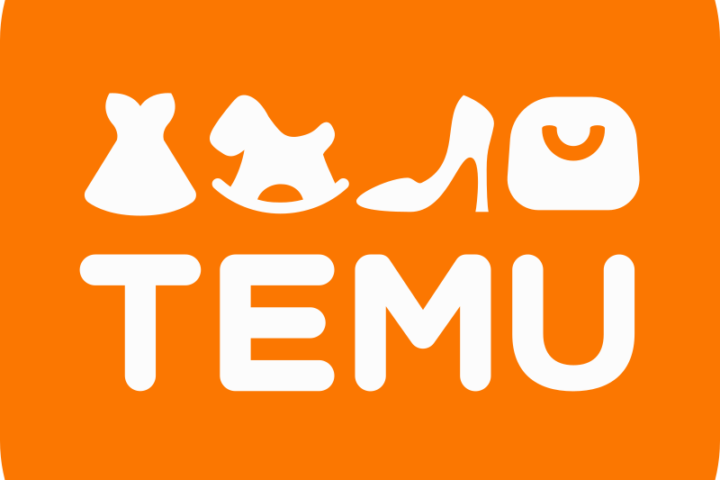Introduction to High Ticket Business
A high ticket business revolves around the sale of premium products and services that command significantly higher prices compared to standard offerings. Typically, these high ticket items range from a few thousand to several tens of thousands of dollars. This business model stands in stark contrast to the low ticket approach, where the focus is on selling a higher volume of lower-priced items. The essence of a high ticket business lies in its ability to generate substantial revenue through fewer transactions, capitalizing on the value and exclusivity of its offerings.
High ticket products often encompass luxury goods, specialized services, and bespoke solutions that cater to a niche market. Examples include high-end coaching programs, advanced software solutions, luxury real estate, and exclusive memberships. These products and services are designed to provide exceptional value and meet specific, often sophisticated needs of discerning clients. Consequently, high ticket businesses prioritize building strong relationships, delivering unparalleled customer experiences, and ensuring that their offerings are perceived as worth the premium price.
The high ticket business model is attractive for several reasons. First, it allows entrepreneurs to achieve higher profit margins with fewer sales, reducing the need for extensive inventory management and operational overhead. Secondly, it offers the opportunity to cultivate deeper, more meaningful relationships with clients, leading to increased customer loyalty and repeat business. Lastly, the high ticket approach often positions businesses as industry leaders, enhancing their brand reputation and market presence.
Understanding the fundamentals of a high ticket business is crucial for entrepreneurs aiming to tap into this lucrative market. By focusing on quality over quantity and delivering exceptional value, businesses can not only achieve financial success but also establish a strong, reputable brand in their respective industries. The subsequent sections will delve into the specific benefits and strategies that can help you successfully navigate and thrive in the high ticket business landscape.
Higher Profit Margins
One of the most compelling reasons to consider a high ticket business is the prospect of higher profit margins. Unlike low-ticket items that require a high volume of sales to generate significant revenue, high-ticket items can achieve substantial profits with fewer transactions. This fundamental difference makes high ticket businesses particularly appealing for entrepreneurs looking to maximize their earnings with less constant hustle.
For instance, consider a business selling luxury watches priced at $5,000 each compared to another selling casual watches for $50. To generate $50,000 in revenue, the luxury watch business would need to sell only 10 units, while the casual watch business would need to sell 1,000 units. The effort, time, and resources spent on marketing, customer service, and logistics are significantly reduced when dealing with fewer, high-value transactions. This reduction in operational complexity contributes to higher profit margins per sale.
Statistics further illustrate the financial advantages of high ticket businesses. According to a study conducted by Forrester Research, businesses focusing on high ticket items typically enjoy profit margins ranging from 20% to 50%, whereas those dealing with low-ticket items often see margins between 5% and 10%. This stark contrast underscores the potential for greater profitability in high ticket business models.
Moreover, high ticket businesses tend to attract a different customer demographic—one that values quality, exclusivity, and personalized service. These customers are often more loyal and willing to make repeat purchases, thereby increasing the lifetime value of each customer. As a result, businesses can invest more in customer acquisition and retention strategies, knowing that the return on investment will be higher.
In essence, the financial benefits of a high ticket business are clear. By focusing on high-value items, businesses can achieve greater profit margins, reduce operational complexities, and build a more loyal customer base. This makes the high ticket business model an attractive option for entrepreneurs seeking sustainable and substantial growth.
Attracting Quality Clients
One of the most compelling reasons to venture into a high ticket business is the caliber of clients it attracts. High ticket pricing naturally filters out less committed and financially unstable individuals, leaving a clientele that is serious, committed, and financially capable. These clients are often more appreciative of the value your product or service offers, understanding that quality comes at a price.
High ticket clients are more likely to have a vested interest in the success of their purchase, whether it be a premium service or a high-end product. This level of commitment not only enhances the client experience but also fosters a stronger, more meaningful business relationship. When clients invest significantly in something, they tend to be more engaged and proactive, thereby leading to more fruitful and collaborative interactions.
Furthermore, financially stable clients are less likely to default on payments, providing your business with a more predictable revenue stream. They are also more likely to provide valuable feedback and constructive criticism, which can be instrumental in refining your offerings and enhancing customer satisfaction. By attracting such quality clients, your business stands to gain not just financially, but also in terms of reputation and long-term sustainability.
Additionally, high ticket business models often create an environment of exclusivity and prestige, which further attracts clients who are not only looking for superior products or services but also value the status associated with them. This exclusivity can lead to word-of-mouth referrals among similar high-caliber individuals, effectively creating a network of quality clients that can drive your business forward.
In summary, focusing on a high ticket business model allows you to engage with clients who are more likely to value and respect your offerings, leading to more meaningful and enduring business relationships. This type of client base is crucial for long-term success and growth, making the high ticket business approach a strategic choice for many entrepreneurs and organizations.
Increased Perceived Value
In the realm of high ticket business, one of the most compelling advantages is the increased perceived value of products or services. The psychological aspect of pricing plays a crucial role here, as higher prices often signal higher quality to consumers. This phenomenon, known as value perception, significantly affects consumer behavior and purchasing decisions.
When a product or service is priced at a premium, customers tend to associate it with superior quality, exclusivity, and better performance. This is partly because higher prices create an expectation of enhanced benefits. Consumers believe they are investing in something exceptional, which often leads to a higher level of satisfaction and loyalty. The principle of value perception is rooted in the human tendency to equate price with value, where the cost of a product serves as a heuristic, or mental shortcut, to judge its worth.
Several brands have successfully utilized high ticket pricing strategies to enhance their market positioning and build customer trust. For instance, luxury automobile manufacturers like Mercedes-Benz and BMW have long leveraged high pricing to convey prestige and unrivaled quality. These brands are not just selling vehicles; they are offering a status symbol and an experience that justifies the premium cost. Similarly, in the fashion industry, brands such as Gucci and Louis Vuitton employ high ticket pricing to maintain an aura of luxury and exclusivity, appealing to consumers who are willing to pay more for perceived superior craftsmanship and design.
In the technology sector, Apple exemplifies the power of high ticket pricing. By setting higher prices for its products, Apple has cultivated a brand image synonymous with innovation, reliability, and cutting-edge technology. Customers flock to Apple stores not just for the products themselves, but for the perceived value and the prestige of being part of an elite user base.
Overall, the high ticket business model leverages the psychological impact of pricing to create a stronger perceived value. This strategy not only attracts discerning customers but also fosters long-term loyalty and differentiation in a competitive marketplace.
More Personalized Service
One of the defining characteristics of a high ticket business is the emphasis on offering more personalized and tailored services to clients. Unlike mass-market approaches, high ticket enterprises focus on understanding and catering to the unique needs of each customer. This bespoke service model is instrumental in delivering exceptional customer experiences, which, in turn, foster higher levels of customer satisfaction and loyalty.
Providing customized solutions allows businesses to address specific pain points and preferences of their clientele. This individualized attention not only enhances the perceived value of the service or product but also builds a deeper connection between the business and its customers. For instance, in the luxury travel industry, travel agencies that specialize in high-end vacations create bespoke itineraries tailored to the exact wishes of the traveler, ensuring a memorable and unique experience.
Similarly, in the realm of high ticket consulting services, firms often go beyond generic advice to deliver highly specialized strategies that align precisely with their clients’ business goals. This level of personalization can make a significant difference in the outcomes achieved, thereby justifying the premium price tag associated with such services.
Another industry where personalized service is a key differentiator is in high-end real estate. Real estate agents working with luxury properties typically offer a concierge-like service, managing everything from private viewings to bespoke marketing strategies for each property. This tailored approach not only attracts discerning buyers but also ensures that the sellers feel their properties are being handled with the utmost care and expertise.
In essence, the ability to offer personalized service is a cornerstone of the high ticket business model. It enables companies to stand out in competitive markets by delivering unparalleled value and fostering long-term customer relationships built on trust and satisfaction.
Better Resource Allocation
In the realm of high ticket business, the ability to allocate resources efficiently is a critical advantage. By concentrating on high-value items, businesses can channel their efforts and investments into areas that yield significant returns. This stands in stark contrast to the often overwhelming demands of low-ticket, high-volume sales models, where resources are stretched thin across numerous low-margin products.
One of the primary benefits of a high ticket business is the ability to invest substantially in product development. When selling high-ticket items, businesses can afford to dedicate more time and resources to refining their products, ensuring they meet the highest standards of quality and innovation. This investment in excellence not only enhances the product’s appeal but also positions the business as a leader in its industry.
Moreover, a high ticket business model allows for superior customer service. With fewer transactions to manage, businesses can provide personalized and attentive support to their clients. This ensures a higher level of customer satisfaction, fostering loyalty and encouraging repeat business. For instance, luxury car manufacturers often provide bespoke services to their clients, including customization options and dedicated service teams, which significantly enhance the customer experience.
Marketing efforts also benefit from this focused approach. High ticket businesses can allocate more substantial budgets to targeted marketing campaigns, effectively reaching a niche audience. By leveraging advanced marketing strategies, such as personalized content and high-quality visuals, these businesses can create compelling narratives that resonate with their target market. A notable example is the high-end real estate sector, where agencies invest in virtual tours, professional staging, and customized marketing materials to attract affluent buyers.
In essence, the high ticket business model facilitates better resource allocation by allowing companies to focus their investments on areas that drive substantial value. This strategic approach not only enhances the overall quality of the product and service but also bolsters the business’s market position and long-term success.
Scalability Potential
The allure of a high ticket business often lies in its inherent scalability potential. Once a solid foundation and a loyal client base are established, high ticket products and services can be scaled with remarkable efficacy. The fundamental premise of a high ticket business is to offer premium value, which, when coupled with strategic growth initiatives, can lead to exponential growth.
One primary strategy for scaling a high ticket business is leveraging digital marketing. With the advent of advanced analytics and targeted marketing techniques, businesses can pinpoint their ideal customer profiles and create highly effective marketing campaigns. Utilizing platforms such as social media, search engine marketing, and email marketing can significantly expand the reach of high ticket offerings. By investing in high-quality content and personalized customer interactions, businesses can attract and retain high-value clients.
Another potent avenue for scaling is through strategic partnerships. Collaborating with other businesses that complement your high ticket offerings can open new channels for customer acquisition. For instance, a luxury travel agency could partner with high-end hotels and exclusive experience providers to create bundled packages that appeal to affluent clientele. Such partnerships not only enhance the value proposition but also allow businesses to tap into each other’s established customer bases.
Expanding service offerings is also a critical strategy in scaling a high ticket business. By diversifying the range of premium products or services, businesses can cater to a broader spectrum of client needs. For example, a high-end coaching service could introduce specialized workshops, exclusive membership programs, or advanced training modules. This diversification not only increases revenue streams but also fortifies the business against market fluctuations.
In essence, the scalability potential of a high ticket business is vast, driven by strategic digital marketing, synergistic partnerships, and the expansion of service offerings. These approaches enable businesses to grow their market presence, enhance customer loyalty, and achieve sustained profitability.
Conclusion and Next Steps
In conclusion, choosing a high ticket business model offers a myriad of benefits that can significantly enhance your entrepreneurial journey. The key points discussed throughout this blog post highlight the advantages such as higher profit margins, which directly contribute to the financial stability and growth of your business. Additionally, this model attracts quality clients who are willing to invest in premium services or products, leading to more meaningful and long-lasting business relationships. The increased perceived value associated with high ticket items further reinforces the credibility and reputation of your brand in the market.
For those interested in transitioning to or starting a high ticket business, it is essential to follow a strategic approach. Begin with thorough initial research to understand the dynamics of the high ticket market, including the competition and potential demand for high-value offerings. Identifying your target market is crucial; focus on demographics and psychographics that align with the premium nature of your services or products. This ensures that your marketing efforts are directed towards an audience that appreciates and can afford high ticket items.
Developing a strong value proposition is another critical step. Clearly articulate the unique benefits and superior quality of your offerings. This not only differentiates your business from competitors but also justifies the higher price point to potential clients. Invest time in crafting compelling marketing messages that resonate with your target market’s desires and needs.
By implementing these actionable steps, you can effectively transition to or establish a high ticket business that stands out in the marketplace. Remember, the key to success lies in the consistent delivery of exceptional value, which ultimately leads to loyal clients and sustained business growth.



